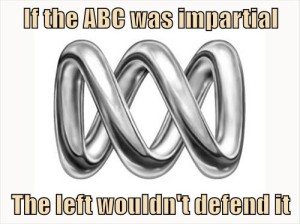A few months ago a question asked on Q&A became front page news across the country:
DUNCAN STORRAR: “I’ve got a disability and a low education – that means I’ve spent my whole life working off a minimum wage. You’re gonna lift the tax-free threshold for rich people. If you lift my tax-free threshold, that changes my life. That means that I get to say to my little girls, “Daddy’s not broke this weekend, we can go to the pictures.” Rich people don’t even notice their tax-free threshold lift.
“Why don’t I get it? Why do they get it?”
In other words he’s asking: “Why don’t rich people pay more tax and the poor pay less tax?”
If you find yourself in a political discussion, this question, or a variant of it will no doubt be asked. It really gets to the heart of the economic philosophical differences between the left and the right.
It’s also a hard question to answer if you are an economic conservative without sounding like the love child of Ebenezer Scrooge and Hitler, (then again, disagreeing with a liberal (in this case we mean “liberal” in the American sense) on anything, will have them calling you this eventually, anyway).
So how do you answer this question?
Kelly O’Dwyer was put in the unfortunate position of answering this question on behalf of all economic conservatives, and she did a pretty bad job. She made the mistake of answering a very personal question broadly. She talked about the overall economic picture and about policy. If a question is direct and personal, it needs to be answered directly and personally, not with abstract ideas. Her answer did nothing to make conservative economic policies appeal to swing voters.
So what does work?
The first thing you need to accept is that when a question is asked from an emotional place, it’s nearly impossible to change someone’s mind. You can’t tell someone how they feel, even if the facts say otherwise. Feelings don’t influence facts, and facts don’t influence feelings. Duncan feels like he is getting a rough deal, and no amount of facts will convince him otherwise. You can tell Duncan 10% of Australians pay 50% of the total income tax collected. You can tell Duncan he actually gets more out of the tax system than he puts in, and that his mere existence is actually a net financial loss to Australia’s budget. These facts however, won’t change how he feels.
I know this is normally a very bad tactic in a discussion, but his question needs to be answered with another:
‘What percentage tax rate do you think Australians should pay?’
And:
‘What percentage tax rate do you think you should pay?’
Go to facts, figures and specifics as soon as you can. Get away from “More and Less” as quickly as you can, because “rich should pay more” and “poor should pay less” is an argument you’ll never win. What does Duncan think is a fair amount? Now, Duncan may answer this in a lot of different ways, but we are now at least talking about raw numbers, and not how we feel. Whenever you can do that as a conservative you’re already winning the argument. It’s a good way to approach any political discussion with someone on the left.
Now, if Duncan was a fair person he’d say “Well because I use the services of the government at a disproportionate rate, I should pay taxes to support those services.” It’s unlikely this will be his answer; his answer will no doubt be “less” or “nothing”. If Duncan’s answer for his own tax rate is “nothing” then it’s an easy win. You’ve just had him admit he doesn’t want to pay for any of the services he uses. That’s the definition of greedy. If everyone in Australia had that mentality, it would lead to the country’s complete economic collapse.
If he says “less”, then get a specific rate. You can’t argue against “less” but you can argue against an actual number. If you apply the same technique to the previous answer, you’ll still win, you just need to work a little harder to get there.
So what we’ve done now is flipped the script. We are no longer the evil politician withholding money from Duncan. Duncan is a selfish a–hole who wants to get more out of a system than he puts into.
You may not change Duncan’s mind, but you have potentially changed the minds of people watching the show.
So that’s how conservative politicians can answer that question on television.
Next time, I’ll talk about ways YOU can answer that question.











